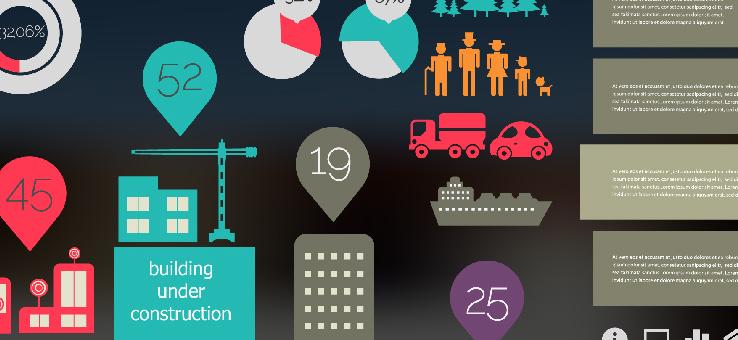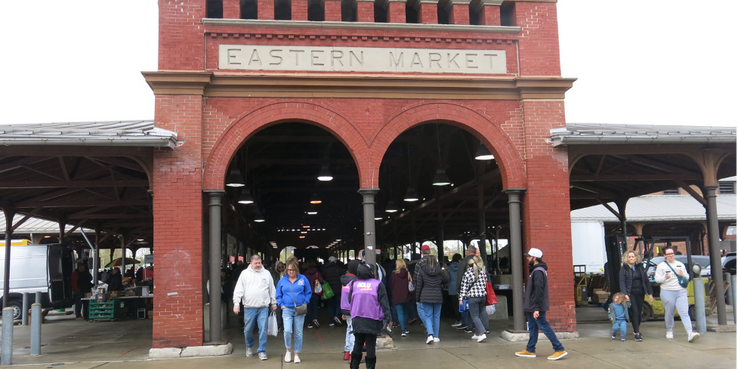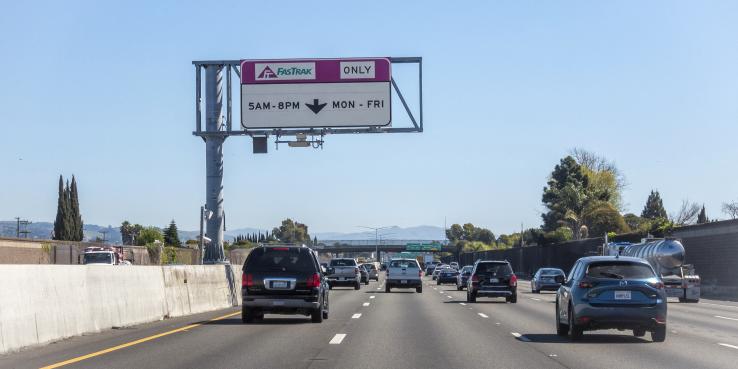
How Detroit’s Food Entrepreneurs Are Invigorating Commercial Corridors and Neighborhoods
News /
Many Bay Area cities are seeing a significant uptick in commercial vacancies — a problem Detroit has been working to address for years. How has the Motor City responded, and what can we learn from its efforts? Here’s how four Detroit organizations have seized on the city’s culture of entrepreneurship to help launch and support food-related businesses that are repopulating deserted storefronts and enlivening neighborhoods that have received little investment.
Making Detroit Home: Addressing the Challenges of Housing Stability and Habitability
News /
In the wake of the Great Recession, Detroit went bankrupt and home foreclosures skyrocketed. Philanthropic dollars have come to the rescue, but the city must now reckon with the factors that keep many Detroiters from thriving: a high property tax rate and punitive tax foreclosure system, lack of access to equitable mortgage lending, and institutional racism.
Making Al Fresco Work
SPUR Report
During the COVID-19 pandemic, the City of San José’s outdoor dining initiative extended a critical lifeline to businesses and their patrons. The program continues to be a popular way to advance economic recovery and enliven streets. SPUR recommends four strategies for improving upon the Al Fresco Initiative and expanding it to businesses and neighborhoods citywide.
Legislature and Governor Approve Extension of California Fruit and Vegetable EBT Pilot Program
News /
The California legislature and Governor Newsom have reinvested in the California Fruit and Vegetable EBT Pilot program, which provides low-income households with up to $60 each month in additional food assistance when they buy fresh fruits and vegetables with their electronic benefits transfer (EBT) cards. Funding in the amount of $9.4 million in the state budget approved last month ensures that the program won’t die on the vine, a victory given the state’s significant budget deficit.
The Future of Coleman Avenue
SPUR Report
Coleman Avenue sits at the intersection of several plans for San Jose’s growth. Located near downtown, the airport, and Guadalupe River Park and Gardens, it will be critical to their future success. SPUR and JLP+D present a community-informed evaluation of the Coleman Avenue corridor and make the case that developing a strategic plan for the area will be critical to leveraging it as a key connector and gateway for the city.
How the 15-Minute City Concept Can Help Shape the Evolution of San José’s Urban Form
News /
Many cities grappling with post-COVID-19 economic recovery have seized on the concept of the “15-minute city,” where people can meet most of their needs within a short walk or bike ride from home. San José embraced similar principles in 2011, when it proposed “urban villages” as a key pillar of its general plan. SPUR believes the 15-minute city concept can help San José evolve its urban form to support a more equitable and sustainable future.
Buildings: The Weak Link in California’s Race to Slow Climate Change
News /
California homes and workplaces are failing to keep pace with the clean energy transition — so much so that the buildings sector could scuttle California’s 2050 net-neutrality goal. Assembly Bill 593 (Haney), now before the California legislature, would direct the California Energy Commission to develop a pollution-cutting plan for buildings that fast-tracks progress by centering equity in implementation.
Detroit’s Riverfront Transformation Offers Lessons for Revitalizing San José’s Guadalupe River Park
News /
Despite its economic woes, Detroit has transformed much of its urban riverfront. The two-decade (and counting) effort to make the riverfront a beautifully landscaped, bicyclist- and pedestrian-friendly public area with parks, plazas, pavilions, and green spaces suggests a strategy for San José to ramp up its redevelopment of Guadalupe River Park.
Revitalizing San José’s Downtown: Five Strategies
News /
San José’s downtown has been hit hard by the impacts of hybrid and remote work. Its office occupancy rate is the lowest among the ten largest U.S. metros, and tax revenues in the city’s Downtown Growth Area have decreased in line with the drop in commuters there. City leaders, with the support of other downtown stakeholders, can adopt five strategies to revitalize downtown as a central social district.
The World Is Coming to San Francisco. Will Public Transit Be Ready?
News /
World political and business leaders are coming to San Francisco later this year for the Asia-Pacific Economic Cooperation CEO Summit. The Bay Area will use the event to highlight its innovation leadership. Ironically, the region’s claims to environmental leadership and the pursuit of equity will be undercut by a public transit system in freefall — unless the state acts quickly to use readily available and more-than-sufficient funding to help transit agencies step back from a fiscal cliff.
Reducing the Toll of Tolls on Low-Income Drivers
News /
Research shows that low-income families benefit most from the time savings provided by toll roads — but they use these roads less than any other income group. That’s because they are disproportionately burdened by tolls. Toll discount programs like the one just established by the Metropolitan Transportation Commission will reduce the impact of tolls on low-income drivers without undermining tolls’ climate and congestion benefits.
Oakland Can Use Its Work on the Proposed Howard Terminal Ballpark to Realize Inclusive Growth
News /
The Oakland A’s decision to abandon negotiations for a new stadium at Howard Terminal is a huge disappointment to Oakland and the city’s many A’s fans. Despite this setback, Oakland remains a viable city for sports investment. And Howard Terminal remains a strong candidate for development. The experience with the A’s has laid the groundwork for future projects in Oakland that meet the city’s economic, environmental, and social standards.
What Comes Next for Downtown San Francisco?
News /
Hybrid work and a scarcity of affordable housing have depopulated San Francisco’s downtown. The consequences have been devastating to San Francisco’s budget, putting essential services and surviving small businesses at risk. How can the city create more economic diversity downtown — and address pre-COVID equity and sustainability challenges? SPUR has identified four key areas on which to focus our downtown revitalization research, engagement, and advocacy.
New Transit-Oriented Communities Policy Encourages Equitable and Sustainable Development
News /
The Metropolitan Transportation Commission’s Transit Oriented Communities Policy, passed in 2022, aims to simultaneously address the climate crisis, the Bay Area’s unaffordability, and racial and economic inequities. SPUR reports on the policy’s main components and answers some critical questions, such as how local jurisdictions are being incentivized to comply with the policy and how residents can follow and become involved in its implementation.
It’s Time for California to Step Up for Public Transit: Here’s How to Help
News /
California transit agencies are facing a $6 billion fiscal cliff. Millions of Californians rely on public transit for access to jobs and school — and the state’s climate, equity, health, and housing goals depend on it. We’re calling for a multiyear commitment to keep transit alive. Here’s what you can do to help.
Welcome to Our New 2023 SPUR Board Members
News /
SPUR welcomes seven new members to its board of directors. These new appointees bring extensive knowledge in planning, economic justice, sustainability and resilience, good government, and housing. We look forward to their advisorship as we continue our work to make the Bay Area a place where everyone can thrive.
SPUR Sponsors Seven State Bills to Make Housing More Affordable
News /
Housing continues to be scarce in the Bay Area and unobtainable for even many middle-income residents. SPUR is advocating for and sponsoring legislation that incentivizes and removes barriers to housing production. In addition, we are supporting a nearly $8 billion budget request for investments in affordable housing and funding for homelessness solutions.
Remembering J. Peter Winkelstein
News /
J. Peter Winkelstein, longtime SPUR board member, talented architect, mentor, and friend to many, died on March 29 at age 94. His work for SPUR continued past his board tenure, as the chair of the new SPUR Urban Center Building Committee. He exemplified a well-lived life of public contribution, and we will all miss him.
New Findings on Shallow Groundwater Rise Highlight a Climate Risk Not Addressed by Policy
News /
The Bay Area’s climate change adaptation strategies don’t reflect — and might even worsen — the impacts of coastal groundwater rise, which is expected to accelerate with sea level rise as the climate warms. New findings on groundwater rise point to multiple potential risks: degradation of underground infrastructure, movement of underground contaminants left by industrial activities, and an increase in liquefaction during earthquakes. The region’s coastal areas may need a new adaptation paradigm.
How Updating CEQA Can Keep Sustainable Transportation Projects on Track: Q&A with Laura Tolkoff
News /
The California Environmental Quality Act (CEQA) is intended to protect people and places from the environmental impacts of new development and infrastructure. But it has not been designed to protect against a rapidly warming climate, and ironically, it has sometimes been used to block projects aimed at doing so. SPUR Transportation Policy Director Laura Tolkoff recently testified before a state committee on possible reforms to the law.



















